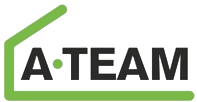Creating a Culture of Academic Integrity: A Shared Responsibility
I. Introduction
At the heart of a student's educational voyage lies academic integrity, symbolizing a dedication to truthfulness, ethical behavior, and the pursuit of knowledge. In the educational sphere, integrity transcends mere rules; it is a collective responsibility that molds individuals and defines the credibility of institutions. Understanding the significance of academic integrity requires a closer look at its various components. Honesty, proper citations, and the avoidance of plagiarism form the bedrock of ethical academic practices. These principles are not just guidelines but vital tools for personal development and a testament to the value placed on learning.
II. Understanding Academic Integrity
To comprehend the gravity of academic integrity, one must explore its components in detail. Honesty in coursework, meticulous citation practices, and the avoidance of plagiarism are integral aspects that every student should internalize. Real-world examples vividly illustrate the consequences of academic misconduct, highlighting the importance of ethical conduct in one's academic journey.
III. Shared Responsibility in Academic Integrity
Academic integrity is not a burden borne by students alone; it is a collective responsibility shared among students, educators, administrators, and parents. Understanding why integrity is a shared commitment paves the way for a harmonious learning environment where each stakeholder plays a crucial role in upholding ethical standards.
IV. Faculty's Role in Promoting Academic Integrity
Educators, as key influencers, hold a pivotal role in fostering a culture of academic integrity. By setting clear expectations, providing guidance on proper citation, utilizing plagiarism detection tools, and cultivating an ethical learning environment, faculty members contribute significantly to creating an atmosphere where honesty is valued.
V. Student Responsibilities
For students, understanding academic honesty is the first step towards maintaining integrity. This involves seeking help when needed, whether in understanding citation formats or navigating the challenges posed by academic rigor. Upholding integrity is not just a set of rules but a commitment to personal growth and ethical development.
VI. Preventive Measures
Preventing academic misconduct requires a multi-faceted approach. Educational programs on academic integrity, awareness campaigns, and the integration of technological tools for detection serve as preventive measures that not only deter misconduct but also educate students on the importance of ethical conduct.
VII. The Link Between Academic Integrity and a Positive Learning Environment
The intrinsic link between academic integrity and a positive learning environment cannot be overstated. Trust and fairness contribute to better learning outcomes, creating an atmosphere where personal growth and development thrive through honest practices.
VIII. Case Studies or Examples
Real-world success stories of academic integrity implementation and lessons learned from institutions promoting integrity provide tangible evidence of the positive impact of ethical conduct on both individuals and the broader academic community.
IX. Practical Tips for Upholding Academic Integrity
For students, educators, and administrators alike, practical tips for upholding academic integrity form a roadmap towards creating and sustaining a culture of honesty. Strategies for students, best practices for educators, and administrative support collectively contribute to a holistic approach to integrity.
For Students: Students can cultivate academic integrity by regularly attending classes, engaging in honest self-assessment, and embracing time-management techniques to reduce the temptation of resorting to dishonest practices. Seeking clarification on assignment instructions and collaborating responsibly with peers are also essential in fostering an environment of mutual trust.
For Educators: Educators play a crucial role in promoting integrity by clearly outlining expectations, offering workshops on proper citation, and incorporating diverse assessment methods. Emphasizing the importance of critical thinking and creating an open dialogue on ethical challenges can empower students to make principled choices.
For Administrators: Administrators can contribute to a culture of integrity by implementing and regularly updating academic integrity policies, providing resources for awareness campaigns, and fostering a supportive environment where reported cases are handled with fairness and consistency.
X. Conclusion
In conclusion, embracing academic integrity is not a solitary journey but a collective effort that involves students, educators, administrators, and parents. As we review the essential takeaways, let's heed the call-to-action, acknowledging that our steadfast commitment to integrity not only molds our academic journey but also sculpts our character, paving the way for future success.
References:
- McCabe, D. L., & Trevino, L. K. (1993). Academic dishonesty: Honor codes and other contextual influences. Journal of Higher Education, 64(5), 522-538.
- Roig, M. (1999). When college students' attempts at paraphrasing become instances of potential plagiarism. Psychology in the Schools, 36(6), 473-476.
